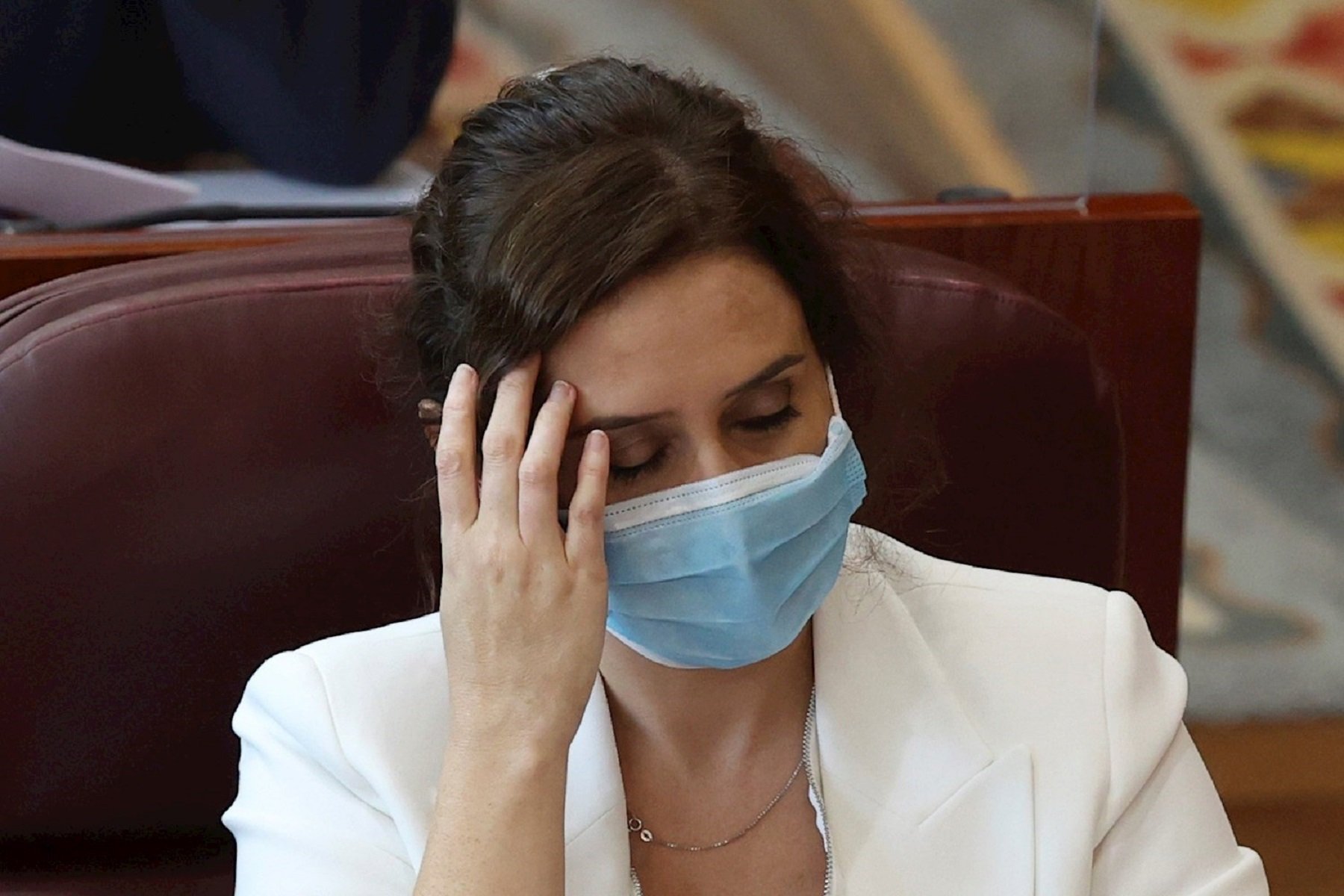The region of Madrid has announced tough new local mobility restrictions this Friday afternoon as part of a series of measures against the serious rise in Covid-19 indicators in and around the Spanish capital. The new measures were announced by Isabel Díaz Ayuso, president of the Madrid autonomous community, six hours later than expected, and were accompanied by a message that the aim is to avoid a state of alarm "at all costs". The regulations will apply to 37 basic health areas where the incidence of new coronavirus cases has shown severe spikes. Among other restrictions on these areas, residents will not be allowed to enter or leave without due reason, a category which includes going to work or school. All commercial premises will have to close down their services at 10pm, including bars and restaurants. Across the whole Madrid region, social gatherings will be limited to six people. The measures will take effect from Monday for a period of 14 days, extendable. A million coronavirus tests will also be performed over the next few days.
The municipalities affected are the capital Madrid, and the surrounding towns and cities of Fuenlabrada, Humanes, Moraleja de en Medio, Getafe, San Sebastián de los Reyes, Parla and Alcobendas. Within Madrid city, there are 26 basic health areas included in the restrictions in the districts of Carabanchel, Usera, Villaverde, Villa de Vallecas, Puente de Vallecas and Ciudad Lineal. In size, some of these basic health areas measure little more than a square kilometre.
The Madrid region's health minister, Enrique Ruiz Escudero, explained the criteria for selecting the health areas: those with a cumulative 14-day incidence of more than 1,000 cases that is constant or growing, and in some cases due to geographical contiguity. The aim is to reduce transmission by reducing mobility. As well as announcing the reinforcement of local and national police in these areas, he also called on residents for cooperation. "If people comply with the measures, it will allow us to avoid taking more drastic steps," he said.
The restrictions
In these 37 basic health areas, entry and exit are restricted except where justified reasons apply. These reasons include visits to medical centres, work obligations, attendance at schools and educational centres, returning home, care of people, visits to banks, visits to government departments, unavoidable official examinations, renewals of permits or force majeure. The health minister advised against any "non-essential" activity.
In these areas, the capacity of places of worship is limited to one third of their normal maximum and that of commercial premises to 50%. Shops and businesses, including bars and restaurants, will have to close their doors to the public at ten in the evening, although they will be able to maintain home delivery service. In bars and restaurants, service at the bar is also suspended. Wakes and vigils are limited to 15 people in open spaces and 10 people in enclosed spaces. Parks and gardens in these health areas will also be closed.
As well, in the whole of the Madrid autonomous community, social gatherings, both in public and private spheres, will be limited to a maximum of six people, not including work activities.
"A state of alarm must be avoided at all costs"
The Madrid regional president argued that the strategy is to diagnose infections en masse in order to provide adequate protection. To this end, she announced that one million antibody tests will be given "in a very short period of time, over the next week." She recalled that the population of the affected areas represents 13% of the population of the Madrid community - around 860,000 people - but 25% of the total infections.
There was one idea in particular that the PP leader reiterated in her speech: "A state of alarm must be avoided at all costs. Lockdown is an economic disaster.” Spain's state of alarm is the emergency status declared in March as part of the backing for the country's lockdown provisions. Ayuso also addressed the people of Madrid: "The public must understand that the virus is everyone's business."
Meeting with Sánchez
The next key date on the calendar is Monday. That is when these measures come into force and it is also when Isabel Díaz Ayuso will hold a meeting with Spanish PM Pedro Sánchez at the Puerta del Sol, the seat of the regional presidency. As stated by the state and regional authorities in today's joint statement, "the goal is one: to bend the curve." The statement points out that the teams of both governments "have been preparing, since yesterday and continuing throughout the weekend, an area of cooperation in the fight against Covid-19."
Despite the criticisms levelled against the authorities for reacting late, Ayuso stressed that at the moment the two governments are in "perfect harmony" and that the central government "is not coming to tell us what to do, but to collaborate." Madrid vice president Ignacio Aguado, of the Ciudadanos party, called for a "political truce" and the unity of all political parties. He stated that "the Spanish government has all the tools to make these measures a success".
The press appearance was postponed twice. Initially it was to be held at 11:30am, then at 1pm and finally it took place at 5pm. The regional authorities explained this as being due to the "legal complexity" of the measures taken.

